
FBS/PPBS/RBS TEST
About FBS/PPBS/RBS:
Fasting blood sugar (FBS), Post-prandial Blood Sugar (PPBS) and Random blood sugar (RBS) are blood sugar tests used to measure the sugar levels in your blood. The results from these tests determine whether or not you have diabetes or a risk of developing it. Diabetes is a chronic condition characterized by elevated blood glucose (blood sugars) levels which over time leads to serious health conditions such as diseases of the heart, nerve, kidneys and eyes.
Functions of glucose:
Glucose is the primary source of energy for all the cells in the body. Without adequate supply of glucose, the cells may starve and may be unable to function.
What are the blood sugar tests used for?
FBS, PPBS and RBS are used to determine:
- Risk of diabetes
- Diabetes management
- Diabetes treatment response
What tests are used to check blood sugar levels?
Fasting blood sugar (FBS):
A fasting blood sugar test measures the amount of glucose in the blood at a given time. To obtain an accurate value, a blood test on an empty stomach in the morning is recommended. Avoid eating or drinking anything other than water for 8-10 hours before the test to ensure accurate results.
Post-prandial blood sugar (PPBS):
Measuring blood sugar, after a meal is termed as ‘postprandial’. This test examines how your body reacts to starch and sugar after a meal. As food is digested in the stomach, blood glucose or blood sugar levels rapidly rise. Your pancreas then secretes insulin to assist in transferring these sugars from the blood into the cells of your muscles and other tissues where they can be used as fuel. Your insulin and blood glucose levels should return to normal within two hours of eating. You might have diabetes if your blood glucose levels continue to be high.
Random blood sugar (RBS):
Random blood sugar test measures the value of blood glucose at any time of the day. You don’t need to fast before this test, and you can take it whenever you want.
Symptoms of Diabetes
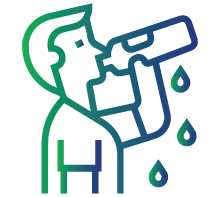
Feeling thirsty very often

Feeling hungry often
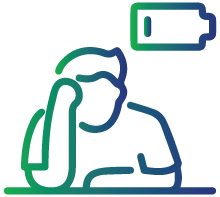
Fatigue
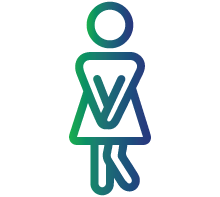
Urinating a lot
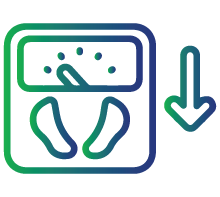
Losing weight without efforts
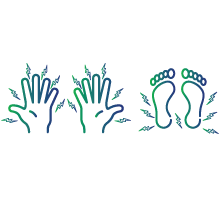
Numbing or tingling of hands and feet
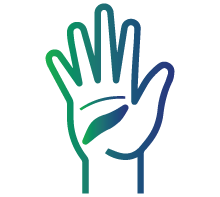
Slow healing of any cuts or wounds
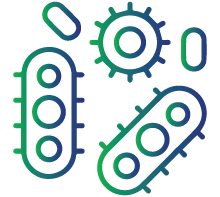
Having infections more than usual
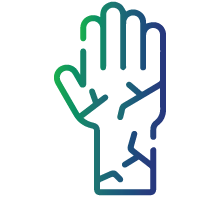
Dry skin
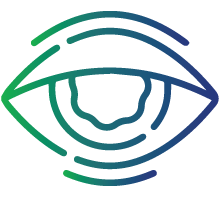
Blurred vision
Who should get tested?

Age over 45 years
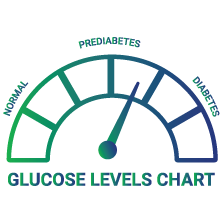
Prediabetes
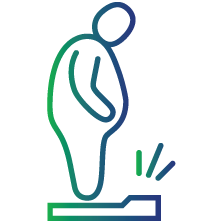
Overweight or obese
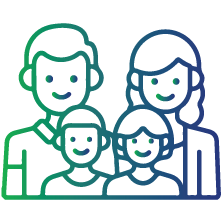
Family history of diabetes
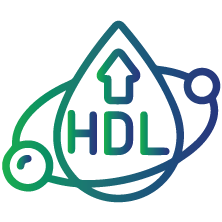
High cholesterol
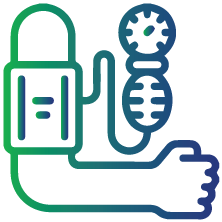
High Blood Pressure
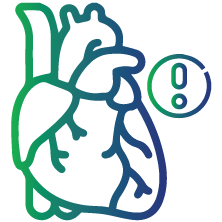
Heart diseases
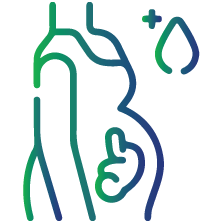
Gestational diabetes

Poly Cystic Ovarian Syndrome
Test preparation:
Except for the fasting blood sugar test, there are no special preparations needed for these tests. For FBS, fasting samples must be collected after a minimum of 10-12 hours of fasting state. Only water may be consumed during this period. The patient is instructed to wait until the sample collection is finished before consuming any morning beverages, such as milk, tea, or coffee.
Interpretation of results:
|
Results |
Fasting blood sugar (mgdl) |
Post-prandial blood sugar (mg/dl) |
Random blood sugar (mg/dl) |
|
Normal |
70-100 |
140 and below |
N/A |
|
Pre-diabetes |
100-125 |
140-199 |
N/A |
|
Diabetes |
126 and above |
200 and above |
200 and above |
Deviations from normal levels indicates the following:
Your results may indicate you have diabetes or are at risk of developing it if they show higher than normal glucose levels. In addition, high glucose levels could indicate:
- Hyperthyroidism
- Pancreas disorders
- Stress following a surgery, a life-threatening illness, or trauma
If you have diabetes, your blood glucose levels may be lower than normal for a variety of reasons, including:
- Eating insufficiently, particularly after taking diabetes medication
- Exercising more frequently than usual
Low blood sugar levels without diabetes may indicate:
- Liver disease
- Kidney disease
- A hypoactive thyroid, pituitary, or adrenal gland (hypothyroidism)
- Addiction to alcohol (AUD)
A medical condition that requires treatment may not always be present if your glucose results are not normal. Stress and particular medications can both impact glucose levels. Speak with your healthcare provider to find out what your test results mean.
FAQs
Do I have pre-diabetes if my fasting blood sugar is 102 mg/dl?
You are considered to have pre-diabetes when either
• You have a fasting blood glucose level of 100 to 125 mg/dl. or
• Your Post-prandial blood glucose/random blood glucose is between 140 and 199 mg/dl.
Can I take fasting blood sugar test if I have taken food 3 hours before?
Fasting blood sugar test is recommended in a fasting state of about 8-10 hours. Deviation from this might decrease the accuracy of results.
How long should I fast before a fasting glucose blood test?
Your body will take at least 10 hours to digest all the food in your system, allowing you to more accurately determine your true fasting blood sugar level. A larger meal will take longer to digest because carbohydrates, proteins, and fats all digest at different rates.
Can I drink coffee before fasting blood sugar test?
No, not even black coffee should be consumed before taking fasting blood sugar test. If it is necessary, then you can consume plain water before the test.
What are the best foods to lower my blood sugar?
A meal plan must be tailored according to an individual's specific needs. Testing your glucose levels at different times of the day will show you how your foods are affecting your levels. Eat high fibre foods, drink lots of water, and focus on eating veggies, legumes, and fish.

